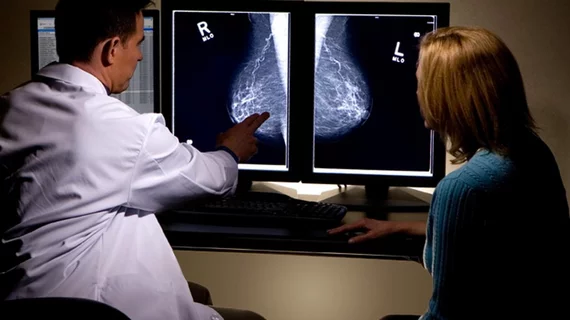Income aside, high-deductible health plans lead to delays in breast cancer diagnosis, chemo
Switching both low-and high-income women from affordable to high-deductible health plans (HDHPs) resulted in lengthy delays in breast cancer diagnosis and treatment, reported authors of a large study published in Health Affairs.
Lead author J. Frank Wharam, MD, MPH, with the Division of Health Policy and Insurance Research at Harvard Medical School, and colleagues analyzed time to first breast cancer diagnostic testing, diagnosis and chemotherapy in 54,403 low-income and 76,776 high-income women whose health plans were switched by their employers from $500 or less to deductibles of at least $1,000.
Results showed low-income women in HDHPs faced 1.6 month relative delays to first breast imaging, 2.7 months to initial biopsy, 6.6 months to incident early-stage breast cancer diagnosis and 8.7 months until their first chemotherapy treatment. Though high-income women faced shorter delays overall, the results were similar. Delays for first diagnostic imaging were 0.7 months, 1.9 months to breast biopsy, 5.4 months to early-stage diagnosis and 5.7 months until their first chemotherapy treatment.
“These results suggest that HDHP-associated delays in breast cancer care are only partially related to patients’ sociodemographic characteristics and that women across the income spectrum might experience high out-of-pocket spending obligations as a barrier to breast cancer care,” Wharam and colleagues wrote. “The delay of approximately five to seven months in early-stage breast cancer diagnosis among women across the sociodemographic spectrum could imply suboptimal breast cancer outcomes.”
Read the entire HealthExec story below.

